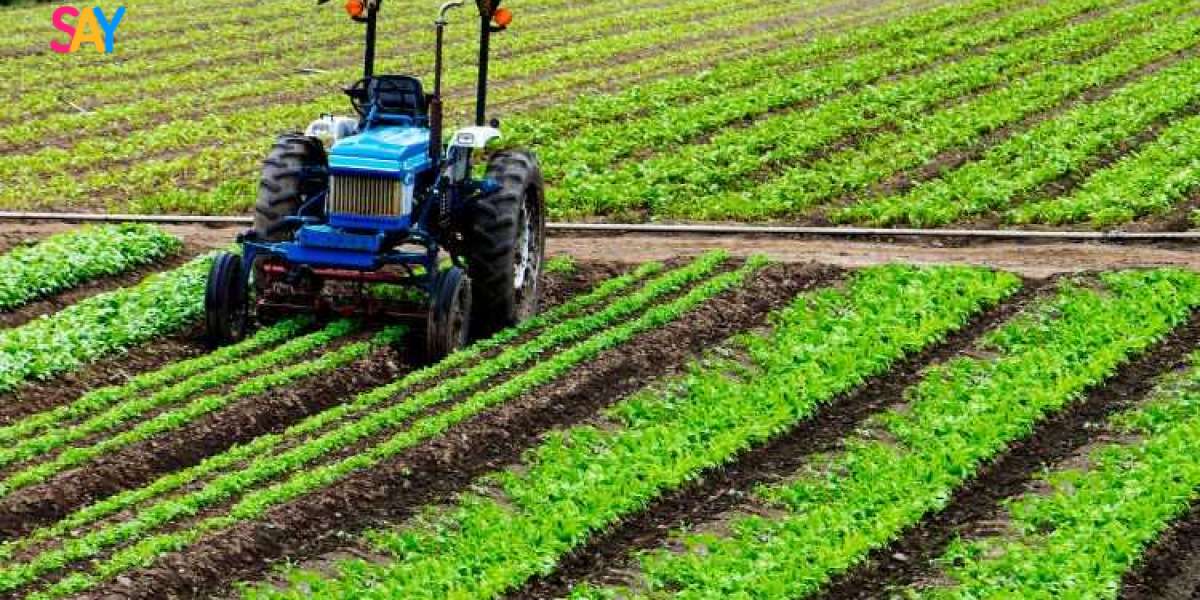The global agricultural adjuvants market size is poised for significant growth, with projections indicating a robust compound annual growth rate (CAGR) of 5.8% during the period 2024-2032. In the modern era of farming, agricultural adjuvants have become indispensable tools for optimizing crop protection, enhancing yields, and promoting sustainable agricultural practices. In this blog post, we will delve into the diverse world of agricultural adjuvants, exploring their types, functions, and the myriad benefits they offer to farmers and the environment alike.
Types of Agricultural Adjuvants:
Surfactants:
Surfactants are among the most commonly used agricultural adjuvants, playing a crucial role in enhancing the efficacy of pesticides and herbicides. These compounds alter the surface tension of spray solutions, ensuring better coverage and penetration of target surfaces. Non-ionic, anionic, cationic, and amphoteric surfactants are all employed in agricultural applications, each offering unique benefits depending on the specific requirements of the crop and pest management strategy.
Adjuvant Oils:
Adjuvant oils, including mineral oils, vegetable oils, and methylated seed oils, serve as carriers for active ingredients and facilitate their uptake by plants. These oils not only improve the spread and adhesion of pesticide solutions but also enhance their ability to penetrate plant tissues, thereby maximizing their effectiveness. Additionally, adjuvant oils can help mitigate the impact of environmental stressors on crops, promoting healthier growth and higher yields.
Drift Control Agents:
In an era increasingly focused on environmental stewardship, drift control agents have emerged as invaluable tools for minimizing the unintended dispersal of pesticides and herbicides. By reducing spray drift, these adjuvants ensure that chemicals reach their intended targets more accurately, minimizing off-target contamination and potential harm to non-target organisms. Drift control agents come in various formulations, each designed to optimize spray applications while minimizing environmental impact.
Compatibility Agents:
Compatibility agents play a crucial role in preventing chemical reactions that could compromise the effectiveness of pesticide solutions. These adjuvants help maintain the stability of spray mixes by adjusting pH levels, buffering acidity or alkalinity, and promoting proper adhesion of active ingredients to target surfaces. By ensuring compatibility between different components of spray solutions, these agents help maximize the efficacy of pesticide applications while minimizing the risk of chemical interactions.
Functions of Agricultural Adjuvants:
Enhancing Pesticide Performance:
At the heart of their utility, agricultural adjuvants are designed to enhance the performance of pesticides and herbicides. By improving the coverage, penetration, and retention of active ingredients, these adjuvants maximize the efficacy of chemical applications, ensuring more thorough and long-lasting pest control. Whether combating insect pests, fungal pathogens, or invasive weeds, the strategic use of adjuvants can significantly enhance the effectiveness of pest management strategies, ultimately leading to higher yields and improved crop quality.
Minimizing Environmental Impact:
In addition to their role in optimizing pesticide performance, agricultural adjuvants also play a crucial role in minimizing the environmental impact of chemical applications. By reducing spray drift, enhancing target specificity, and promoting more efficient uptake of active ingredients by plants, these adjuvants help minimize the risk of off-target contamination and environmental harm. Moreover, by improving the efficiency of pesticide applications, adjuvants can reduce the overall quantity of chemicals required, further mitigating their environmental footprint.
Benefits of Agricultural Adjuvants:
Improved Crop Protection:
One of the primary benefits of agricultural adjuvants is their ability to enhance crop protection by maximizing the effectiveness of pest control measures. Whether combating insect pests, fungal diseases, or herbicide-resistant weeds, the strategic use of adjuvants can significantly improve the efficacy of chemical applications, leading to healthier, more resilient crops. By ensuring more thorough coverage and penetration of active ingredients, adjuvants help farmers achieve better control over pests and diseases, ultimately reducing crop losses and improving overall yields.
Enhanced Crop Yields:
In addition to improving crop protection, agricultural adjuvants also contribute to enhanced crop yields by promoting healthier plant growth and development. By optimizing the uptake of nutrients and water, mitigating the effects of environmental stressors, and enhancing the efficiency of photosynthesis, adjuvants help maximize the productivity of agricultural systems. Whether applied alone or in conjunction with other crop inputs, adjuvants play a critical role in maximizing the yield potential of crops, thereby improving food security and economic prosperity for farmers.
Cost-Effectiveness:
Beyond their agronomic benefits, agricultural adjuvants also offer significant cost savings for farmers by optimizing the efficiency of chemical applications. By improving the efficacy and longevity of pesticide solutions, adjuvants help reduce the need for repeated applications, saving both time and resources. Moreover, by minimizing the risk of off-target contamination and environmental harm, adjuvants can help farmers avoid costly regulatory compliance issues and potential liability claims. In an era of increasing input costs and market volatility, the cost-effectiveness of agricultural adjuvants makes them indispensable tools for modern farming operations.
Functions of Agricultural Adjuvants:
Enhancing Pesticide Performance:
Agricultural adjuvants play a crucial role in enhancing the performance of pesticides and herbicides by improving their coverage, penetration, and retention on target surfaces. This results in more effective pest control, reduced pest resistance, and ultimately, higher crop yields.
Minimizing Environmental Impact:
With increasing concerns about environmental sustainability, the use of agricultural adjuvants is essential for minimizing the environmental impact of pesticide applications. By reducing spray drift and enhancing target specificity, adjuvants help minimize off-target contamination and protect non-target organisms, contributing to overall ecosystem health and biodiversity.
Benefits of Agricultural Adjuvants:
Improved Crop Protection:
Through their ability to enhance the efficacy of pesticide applications, agricultural adjuvants contribute to improved crop protection against a wide range of pests, diseases, and weeds. This leads to healthier, more resilient crops and reduces the risk of yield losses due to pest damage.
Enhanced Crop Yields:
By promoting healthier plant growth and development, agricultural adjuvants help maximize crop yields. They optimize the uptake of essential nutrients and water, mitigate the effects of environmental stressors, and enhance photosynthetic efficiency, resulting in increased productivity and profitability for farmers.




